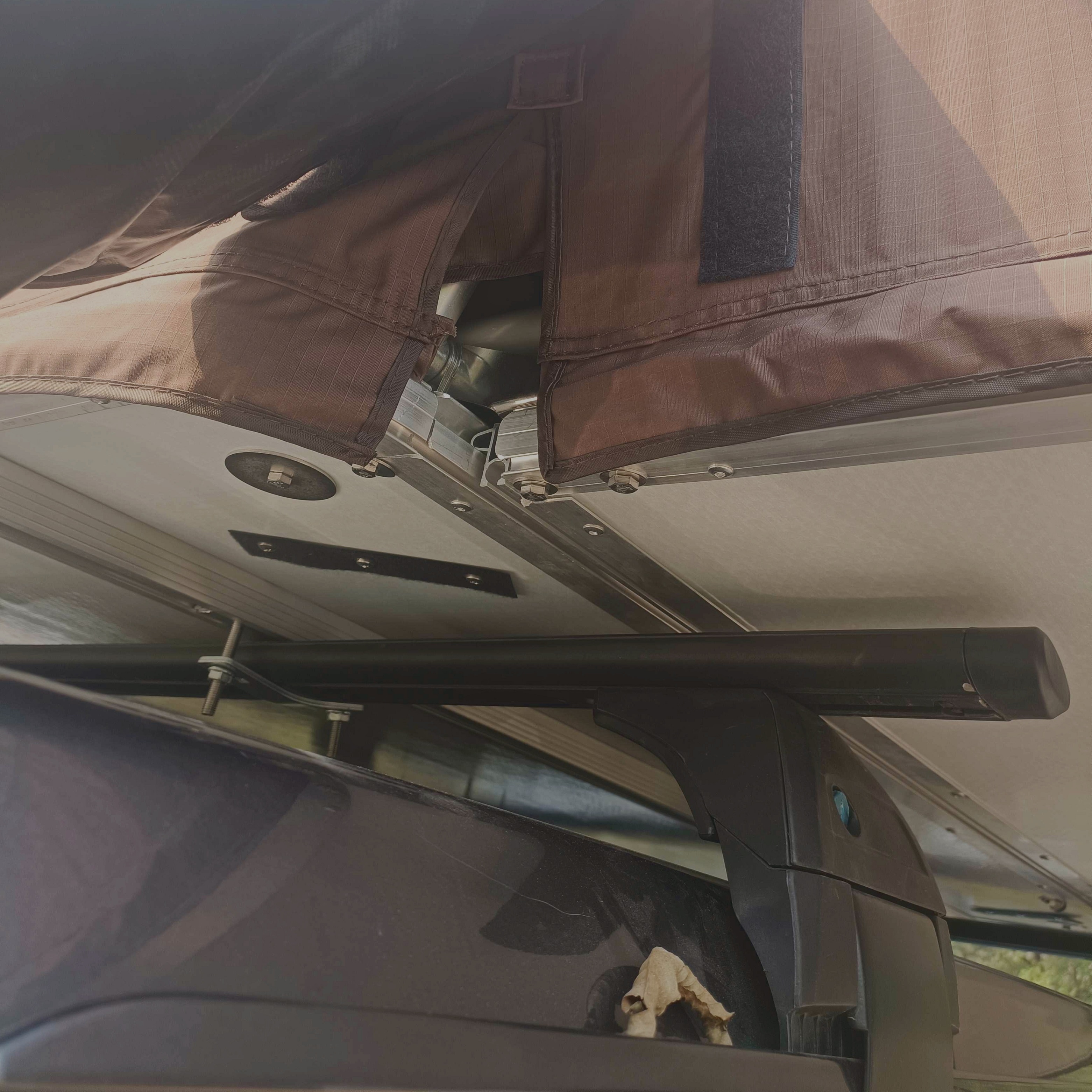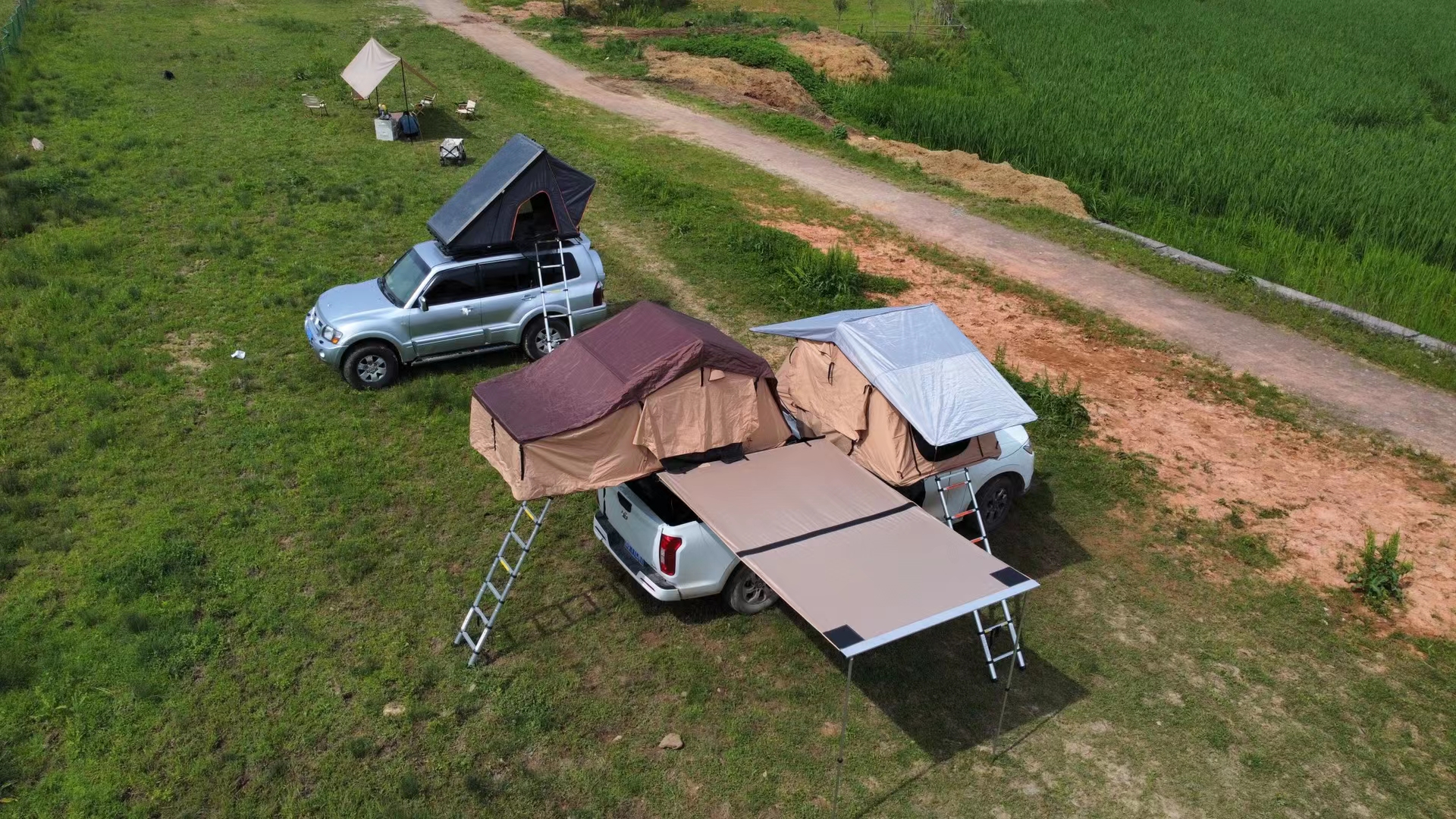Determining Vehicle Compatibility for Rooftop Tents: Ensuring Safe Adventures
With the growing popularity of outdoor activities and camping, rooftop tents have become a popular commodity for adventure enthusiasts. Before starting installation, however, it's crucial to make sure your vehicle can support a rooftop tent. Knowing the weight capacity, roof structure and other important factors can prevent any potential risks and ensure a safe and enjoyable camping experience.
Weight Capacity: Every vehicle has a prescribed weight limit that can be safely placed on the roof. Generally, this information can be found in the owner's manual or by consulting the vehicle manufacturer. To determine if your car can accommodate a rooftop tent, consider the weight of the tent itself and the additional load it adds when occupied. It is recommended to stay within the maximum weight-bearing range to avoid strain on the vehicle suspension and stability.
Roof structure and installation system: The roof structure plays a vital role in the installation of the roof tent. Most roofs are specifically designed to hold the extra weight, including roof racks and cargo boxes. However, it is critical to evaluate the specific mounting point on the vehicle. Some cars may have factory installed roof rails or cross bars that can be used to secure a tent. If the car lacks these mounting systems, there are aftermarket options available. Make sure the chosen mounting system is compatible with your vehicle make and model so that it can be securely attached to the roof tent.


Vehicle Height and Clearance: It's important to consider the extra height a roof tent will add to your vehicle. Check clearance requirements, especially when entering low clearance areas such as parking lots or driveways. Failure to account for the added height could result in accidents or damage to tents and cars.
Wind resistance and aerodynamics: A roof tent can significantly affect the aerodynamics of the vehicle, potentially increasing wind resistance and affecting fuel efficiency. While most modern vehicles are designed to adequately control wind resistance, it is advisable to investigate the specific impact a roof tent has on a car's aerodynamics. Ensures that wind noise and drag are not overly affected, compromising the driving experience and vehicle control.
TESTING AND EXPERT ADVICE: If you're still unsure about your vehicle's compatibility, it's best to seek expert guidance or consult a professional who specializes in rooftop tent installation. They can assess your car's specifications, roof structure, and guide you in selecting suitable options that meet safety requirements. Performing a thorough assessment or seeking professional advice can save you from potential damage and ensure a safe and secure tent installation.
Regular maintenance and inspection: After the roof tent is installed, the tent and vehicle must be inspected and maintained regularly. Make sure all mounting systems are securely fastened and inspected regularly for signs of wear. Routine maintenance will help spot any potential problems early and prevent accidents during your outdoor adventures.
At last, before considering installing a roof tent, it is critical to assess your vehicle's suitability to handle the additional weight and stress. Pay attention to load capacity, roof construction, clearance requirements, wind resistance and seek professional advice if required. Taking the necessary precautions will ensure a safe and memorable camping experience, allowing you to explore the great outdoors with confidence.

Post time: Aug-07-2023